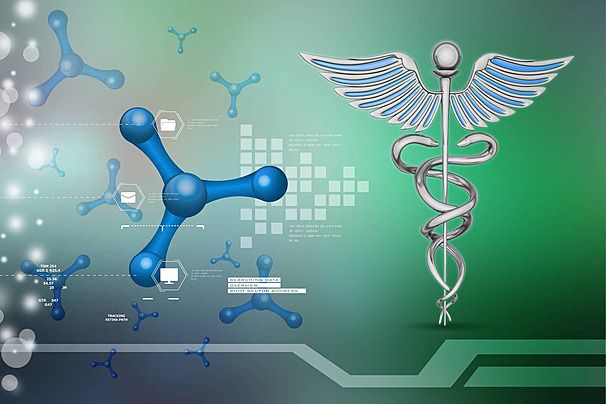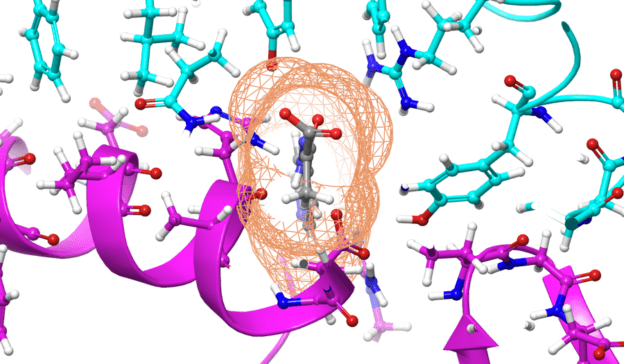
A Quantum Leap for Healthcare
Revolutionizing Diagnostics and Treatments
Healthcare stands at the cusp of a transformative era, with quantum technologies poised to address some of its most enduring challenges. From the quest for earlier and more accurate disease detection to the urgent need for faster and more effective drug development, the unique capabilities offered by quantum mechanics are opening up unprecedented possibilities. This page explores how quantum sensors and quantum computing are leading the charge in revolutionizing medical diagnostics and accelerating the creation of life-saving treatments.
Quantum Sensors
Illuminating the Invisible for Advanced Diagnostics
The ability to see the unseen with greater clarity and detect subtle changes at the molecular level is fundamental to effective medical diagnosis. Quantum sensors, leveraging the principles of superposition and entanglement, offer a pathway to achieve this with unparalleled sensitivity.
- Enhanced Medical Imaging: Quantum magnetometers, such as Superconducting Quantum Interference Devices (SQUIDs) and sensors based on Nitrogen-Vacancy (NV) centers in diamonds, are being explored for their potential to revolutionize medical imaging.
Did you know that SQUIDs can detect magnetic fields billions of times weaker than the Earth's magnetic field? This extreme sensitivity could enable highly detailed brain imaging (Magnetoencephalography - MEG) with improved spatial and temporal resolution, potentially aiding in the early diagnosis and monitoring of neurological disorders like epilepsy and Alzheimer's.
Furthermore, researchers are investigating how NV centers can be used for nanoscale magnetic sensing within biological systems, potentially leading to new ways of imaging individual cells and molecules.
- Early and Precise Disease Detection: The hallmark of effective disease management is often early detection. Quantum sensors hold the promise of detecting disease biomarkers – tell-tale molecules indicating the presence of illness – at extremely low concentrations in bodily fluids.
Imagine a simple blood test using a quantum sensor that could detect the presence of cancer cells years before conventional methods. This level of early detection could dramatically improve treatment outcomes for many diseases.
This capability could be transformative for conditions like cancer, neurodegenerative diseases, and infectious diseases, allowing for timely interventions when they are most effective.
- Point-of-Care Diagnostics: The potential for developing portable and highly sensitive quantum-based diagnostic tools could democratize healthcare, making advanced diagnostics accessible even in resource-limited settings.
Keep an eye out for advancements in quantum-based point-of-care devices. Their portability and sensitivity could lead to faster diagnoses and better patient management outside of traditional hospital settings.
Quantum Computing
Accelerating the Discovery of Life-Saving Treatments

The development of new drugs and therapies is a complex, time-consuming, and expensive process. Quantum computing offers the potential to significantly accelerate this process by tackling challenges that are intractable for even the most powerful classical computers.
- Revolutionizing Molecular Simulation: At the heart of drug discovery lies the need to understand how molecules interact. Quantum computers excel at simulating the behavior of molecules at the atomic level, allowing researchers to accurately predict how a potential drug candidate will interact with its target protein in the body.
Simulating the precise folding of proteins, a crucial step in understanding their function and how drugs might interact with them, is a problem that is exponentially harder for classical computers as the protein size increases. Quantum computers offer a potential pathway to overcome this bottleneck.
This capability can dramatically speed up the identification of promising drug candidates, reduce the need for extensive and costly laboratory experiments, and potentially lead to the development of more effective and safer medications.
- Personalized Medicine through Data Analysis: The era of personalized medicine, where treatments are tailored to an individual's unique characteristics, is being propelled by the increasing availability of genomic and other patient data. Quantum computing's ability to analyze vast and complex datasets with unprecedented speed could unlock new insights, helping to identify patterns and develop highly personalized treatment strategies based on a patient's genetic makeup and medical history.
- Accelerating Materials Science for Healthcare: Quantum computing can also play a crucial role in discovering and designing novel materials with specific properties needed for medical applications, such as biocompatible materials for implants, advanced materials for drug delivery systems, and more efficient materials for medical devices.
Challenges and the Path Forward for Quantum in Healthcare
While the potential of quantum technologies in healthcare is immense, several challenges need to be addressed to bring these advancements to fruition. The development and deployment of both quantum sensors and quantum computers are still in relatively early stages. Key challenges include the cost and accessibility of the technology, the need for highly specialized expertise to operate and interpret results, and navigating the regulatory pathways for medical devices and treatments. However, the convergence of quantum physics, biology, chemistry, medicine, and computer science is fostering rapid progress, with increased collaboration between researchers from diverse fields paving the way for future breakthroughs.
Quantum in Healthcare
India's Potential and Contributions
India, with its robust pharmaceutical industry and growing emphasis on scientific research and innovation, has a significant opportunity to contribute to and benefit from the quantum revolution in healthcare. Efforts are underway in Indian research institutions and universities to explore the applications of quantum computing in drug discovery for diseases prevalent in the region. Furthermore, the development of affordable and accessible quantum-based diagnostic tools could have a profound impact on healthcare delivery across the country. The National Quantum Mission in India is also likely to play a crucial role in fostering research and development in this vital area.
Explore the Quantum Realm Further
Unlocking the Future of Medicine
The intersection of quantum technology and healthcare is a dynamic and rapidly evolving field. To delve deeper into this exciting area, we encourage you to explore the following resources:
- The Emerging Role of Quantum Computing in Enhancing Healthcare - This article from NIH discusses the potential of quantum computing in various aspects of healthcare.
- Quantum sciences - Heriot-Watt University - This page highlights research at Heriot-Watt University, including the development and utilization of quantum sensors for detecting biomolecules associated with disease.
- National Quantum Computing Centre launches Insights Paper exploring quantum computing's transformative potential in healthcare and pharmaceuticals - This recent article discusses the potential of quantum computing in healthcare and pharmaceuticals.